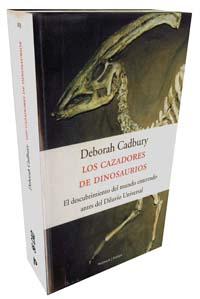Need to find dinosaurs

For us it is the common name of dinosaur. And the concept underlying this name is very common, that is, a set of giant reptiles that at some point had great success in evolution. But 200 years ago neither name nor concept existed. However, the fossil hobby already existed in some places.
One of those places was southern England. And, precisely, the first dinosaurs were discovered by their fosilists; in 1811, a girl named Mary Anning first discovered a complete skeleton of an ichthyosaurus. He did not know what it was, he considered the fossilized skeleton of an old crocodile. Nobody knew what it was, but this discovery and others made in the coming years aroused the interest of geologists. The age of the Earth was being investigated then, and fossils were important elements in that research. Dinosaur fossils also shook the theories of zoologists.
This book tells the story of all these people, the most fossilized of geologists and zoologists. A race of discovery and almost capture of dinosaur footprints, as well as the interpretation of fossils, was launched.
Many big names appear associated with dinosaur fossils. Priest William Buckland, for example, wanted to adapt the discovery of dinosaurs to the interpretation of the Bible; James Parkinson, a doctor who first described Parkinson's disease and one of the founders of the Geological Society, participated in the definition of a reference system to know when syllables were; Georges Cuvier, one of the greatest experts in zoology; and many other English judges.
However, the most outstanding were two: Gideon Mantell and Richard Owen. Both were experts in the study of dinosaur bones and disputed one of the best-known competitions in the history of science. Today, Owen is the most important, since it was the one who invented and spread the word dinosaur.
We cannot forget another great name: Charles Darwin. The father of evolution is important in this account, not because of the search or study of dinosaur fossils, but because he developed a solid theory to understand them. However, Darwin was afraid, for example, of Owen's opinion. And he was right; although he was initially a supporter of Owen Darwin, he could not accept the final conclusions of the theory. And the inventor of the word dinosaurs was very strong in the 19th century. In 20th century science.





